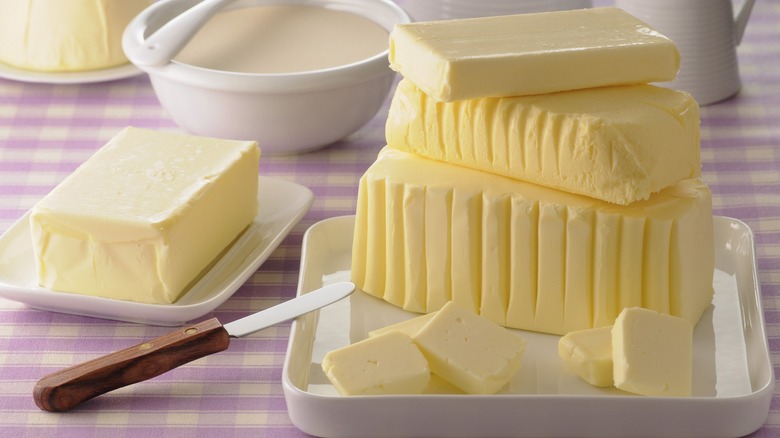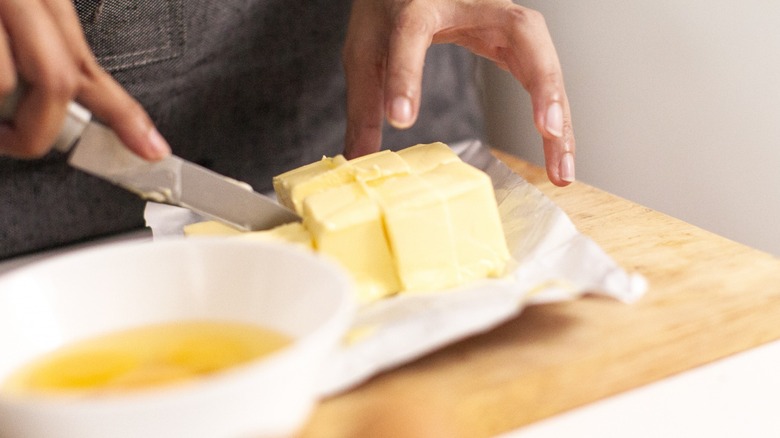This Is How To Substitute Unsalted Butter For Salted In Your Dishes
If you spend any time cooking or baking, then you know that butter is a frequent ingredient needed for dishes — and there are even plenty of recipes where butter is front and center. When a recipe calls for butter, it usually specifies one of the two main types: salted or unsalted. But what do you do if a recipe calls for salted butter but all you have on hand is unsalted? Luckily, this is an easy fix.
For every stick of unsalted butter that you use, simply add ¼ teaspoon of salt to the recipe — this is approximately the amount of salt found in salted butter (although it may differ slightly between butter brands). So, keep this tip in mind when you're missing the right kind of butter. As a bonus, the reverse also works: If you only have salted butter when a recipe calls for unsalted, simply remove ¼ teaspoon of salt from the mix.
However, there is the off chance that a recipe doesn't call for any salt at all — though this is unlikely as it seems to show up in recipes even more often than butter does. But just keep in mind that, in this case, the dish will be saltier than intended if you use salted butter in place of unsalted.
When to use salted versus unsalted butter
Since we're talking about butter, you may be wondering: If a recipe doesn't specify, when is it better to use salted butter versus unsalted butter? In the absence of guidance, it's much safer to go with unsalted butter so that you avoid a finished dish that is overly salty. And when it comes to baking, unsalted butter should essentially always be used. This gives you complete control over how much salt goes into the recipe — because, remember, different brands may put different amounts of salt in their salted butter.
Additionally, unsalted butter has a lower water content, which is preferred when baking because gluten development can be negatively impacted by extra moisture. Finally, unsalted butter is fresher because salt works as a preservative, which gives salted butter a longer shelf life. In other words, unsalted butter is turned over more often in grocery stores.
On the other hand, it's best to use salted butter for cooking. Generally, cooking is more forgiving than baking — the latter of which is more of an exact science — so you have more leeway to play around with ingredients and amounts. The added salt of salted butter can even enhance the flavors of what you're cooking, as it does when used in sauces or as a baste for certain meat dishes.

